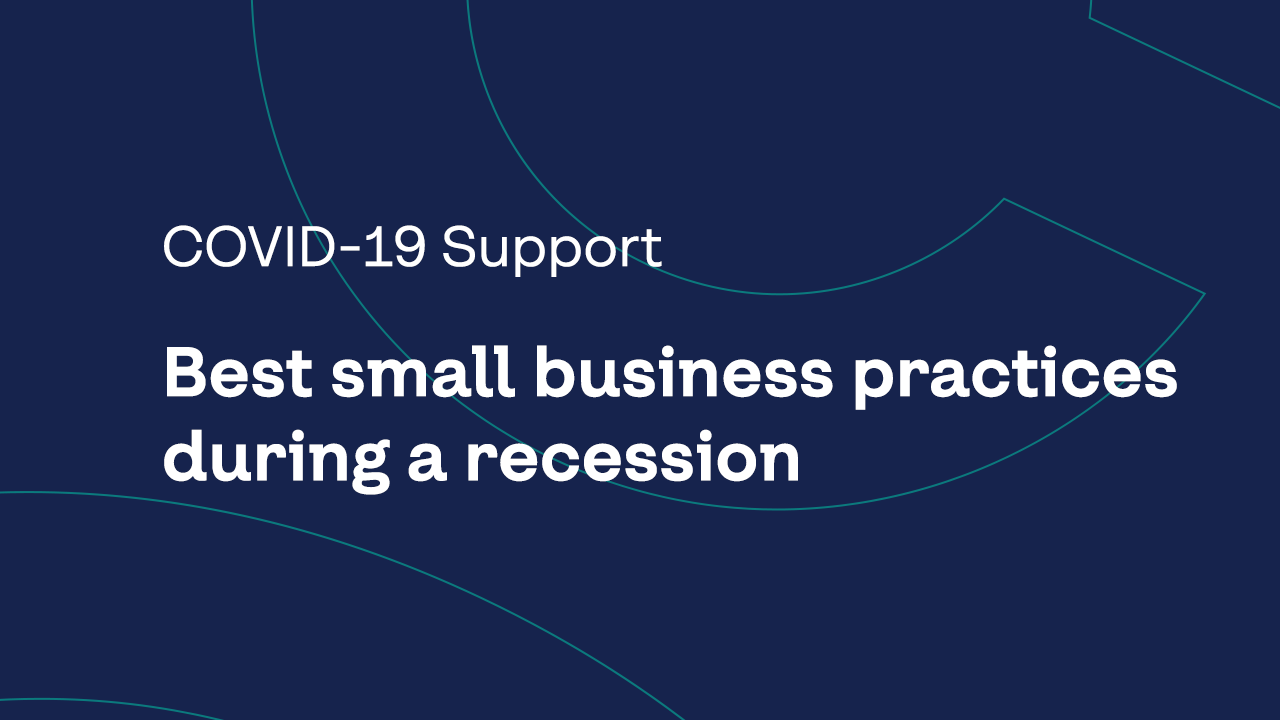Unfortunately, it’s become clear that the economic impact of COVID-19 is unavoidable. But that being said, there are a few things that are within your control to help you get to the other side of this sooner rather than later. While you don’t know how deep the next recession will be (with luck it’ll be a small one with a strong recovery) it’s best to plan for the long haul—just in case.
Here are some tips for helping your business survive a slowing economy, so you’ll be in a position to thrive when we reach the other side.
Eliminate discretionary spending
A recession is no time for carrying unnecessary costs. Scour your outgoings to see where you can save even just a few dollars.
Talk to your utility providers to see if they can offer a lower tariff, making sure they know you’re also assessing their competitors. Speak to your suppliers to see if they can offer discounts for fast payments. If you rent your premises, see if you can arrange a longer lease in return for lower payments.
Every small amount you can save will benefit your cash flow, and the longer the recession goes on, the more valuable the savings will be.
Ensure your books are in order
Keeping on top of your accounting is more important than ever when a recession is stifling your cash flow. The less often you do your figures, the more chance there is of a nasty surprise sneaking through when it’s too late to mitigate the damage.
If you currently leave your bookkeeping and taxes as late as possible, try doing them monthly or even weekly. Always knowing exactly where you stand is essential for decision making when your business is under pressure.
Realize unused assets
Most small businesses have at least some unused assets which could be realized to help ease a recession’s impact.
Have you got surplus stock taking up storage space? Sell it at cost to free up inventory and add to your revenues. Cash sitting in your business chequing account? Move it to an easy-access savings vehicle to earn a little more interest.
And don’t forget the value held in your unpaid invoices. Ramping up your collection procedures or offering better terms for fast payment can give a significant boost to your cash flow figures.
Explore refinancing options
The loan you arranged in easier conditions might not be as cost-effective or manageable in a contracting economy. Consider refinancing any debts to spread the repayments over a longer period. Even if this costs more in long-term interest, in the short term the lower monthly costs will help ease the pressure.
Prioritize debt
And if you can’t refinance your business debts, focus on reducing the most expensive ones with any extra funds you have. The compound interest on credit cards, for example, is a constant drain on your balance sheet, and every few dollars you can shave off the debt is a worthwhile investment.
Every small business is different and needs to take its own path through difficult times. But if you keep these best practices in mind, you’ll be building the stability you need to help you through. For more information on how to prepare your small business for an economic downturn, connect with your relationship manager, and lean on experts in this time of need.



